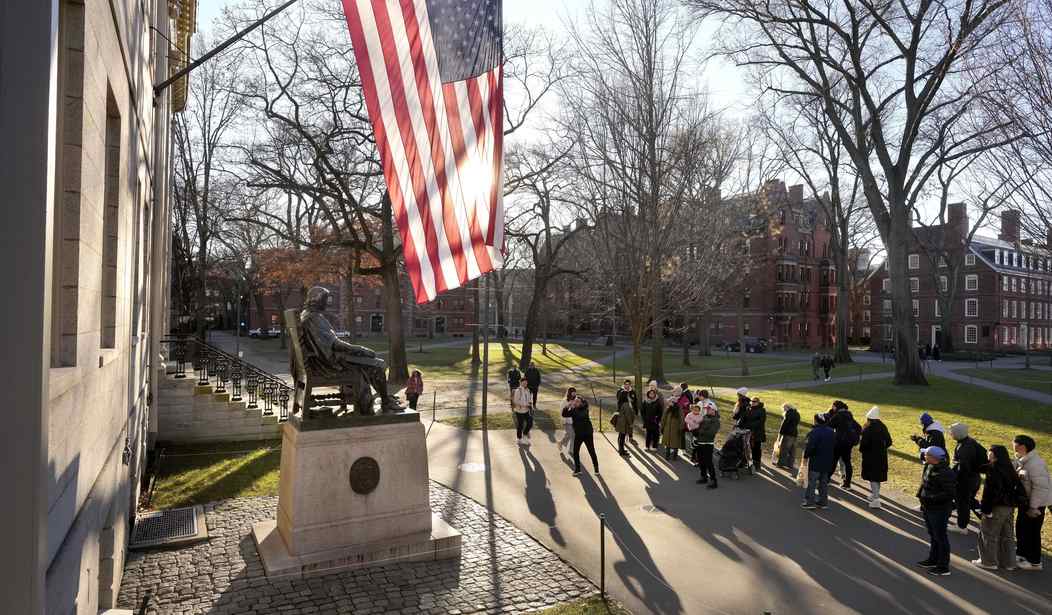Here are a couple of questions: is Harvard a hotbed of plagiarism, or perhaps academia as a whole?
Harvard certainly has a huge plagiarism problem, much of which is concentrated in the DEI fields, but not all. Harvard Medical School has suffered from academic fraud scandals as well.
Christina Cross is a rising star in the field of critical race studies. She earned a Ph.D. from the University of Michigan, garnered attention from the New York Times, and won a slate of awards for her dissertation, including one from the American Sociological Association. pic.twitter.com/7iYmSSnx7c
— Christopher F. Rufo ⚔️ (@realchrisrufo) March 20, 2024
The latest scandal centers abound, surprise, surprise, a professor whose work is widely lauded in CRT circles. The winner of multiple awards for her work despite it being riddled with obvious examples of plagiarism.
According to a new complaint filed with Harvard’s office of research integrity, however, Cross’s work is compromised by multiple instances of plagiarism, including “verbatim plagiarism, mosaic plagiarism, uncited paraphrasing, and uncited quotations from other sources.”
I have obtained a copy of the complaint, which documents a pattern of misappropriation in Cross’s dissertation and one other academic paper. The complaint begins with a dozen allegations of plagiarism related to the dissertation that range in severity from small bits of “duplicative language,” which may not constitute an offense, to multiple passages heavily plagiarized from other sources without proper attribution. (Cross did not respond to a request for comment.)
The most serious allegation is that Cross lifted an entire paragraph nearly verbatim from a paper by Stacey Bosick and Paula Fomby titled “Family Instability in Childhood and Criminal Offending During the Transition Into Adulthood” without citing the source or placing verbatim language in quotations
Elsewhere in the dissertation and another paper, Cross allegedly lifts work from a number of sources, with minor word substitutions, without placing the copied language in quotation marks or properly citing the authors. pic.twitter.com/xPA16fGl0Q
— Christopher F. Rufo ⚔️ (@realchrisrufo) March 20, 2024
If you think about it, handing out accolades and awards for copying others' work makes a lot of sense in the more ideological fields. After all, the entire point of CRT and adjacent fields is to enforce an ideological uniformity incompatible with independent scholarship and thought, so why not create a series of cookie-cutter documents from which "scholars" can copy and paste at their leisure?
It beats working, and by now we have good reason to suspect that none of these people are scholars by any standard recognizable to actual academics.
For the full story about Harvard's rapidly expanding plagiarism crisis, read my report in City Journal: https://t.co/LQziKegGjn
— Christopher F. Rufo ⚔️ (@realchrisrufo) March 20, 2024
That plagiarism seems to be especially common at Harvard is at first surprising, until you realize that Harvard's real product is neither education nor research, despite being well-regarded for both.
Harvard's actual product is prestige, both for its students and for is employees. Academic skills are no longer necessary to add to the prestige capital of the University so in many cases the institution decides to grant prestige for non-academic reasons, including elevating an ideological position or creating a research profit center.
Quality no longer matters at Harvard, which is not to say that the university is indifferent to the quality of its students or scholars. Rather, quality is only one among many variables and often not the dominant one.
You see this in their student choice. Both Jazz Jennings and David Hogg wound up at Harvard, and I think we can rest assured it was not for their ability to increase the average IQ of the student body. They were admitted to promote transgender ideology and gun control by putting the Harvard stamp of approval on each of them.
The same could be assumed about the hiring of Claudine Gay and Christina Cross, who are at Harvard to make an ideological statement about race. Clearly, they are not scholars; they are symbols, and Harvard wants the Harvard prestige to attach to the causes that they represent.
What Harvard is now discovering, though, is that prestige is much harder to build and maintain than to destroy, and it is in the process of losing it very quickly. Major law firms are now declining to hire Harvard graduates, and donors are rejecting pleas to cough up the dough.
Harvard closes library, citing 'financial considerations'https://t.co/UN3AqVLLTg
— Þe Political Hat (@ThePoliticalHat) March 19, 2024
Of course, Harvard has quite the financial cushion to soften the blows, with $50 billion being put to work and some of the best financial minds in the world to help them grow it. No need to worry about Harvard's imminent collapse.
All I can say is that it couldn't happen to a better target.







Join the conversation as a VIP Member